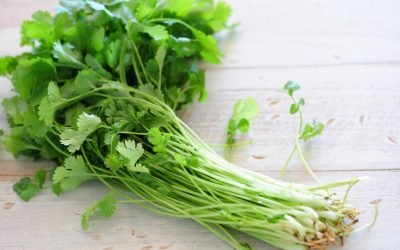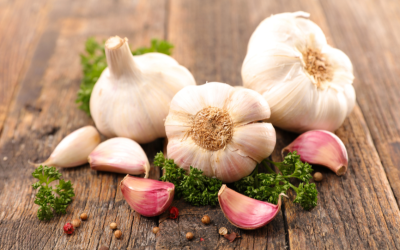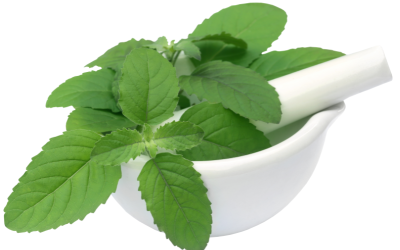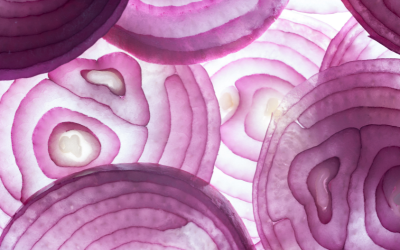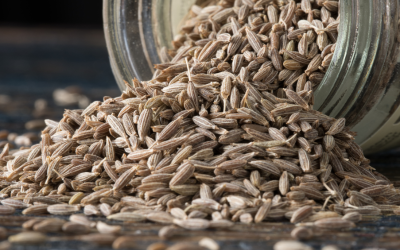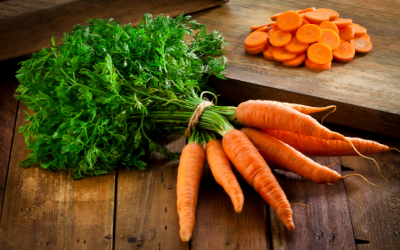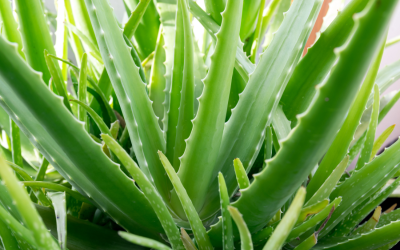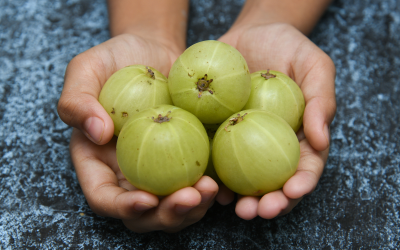The Nutritional Value of Ginger: A Superfood Spotlight

Ginger, known for its distinct flavor and aromatic properties, has been revered for centuries across cultures not just for its culinary uses but also for its remarkable health benefits. From soothing an upset stomach to potentially aiding in the management of chronic diseases, this humble root packs a powerful punch when it comes to enhancing health and wellness.
There are numerous references to ginger in Sanskrit literature and Chinese medical treatises. The Sanskrit name Singabera gave rise to the Greek Zingiberi and the Latin Zingiber. Ginger has been used as a medicine in India since the Vedic period and is called maha-aushadhi, meaning the great medicine.
Ginger is believed to have originated in India and was introduced in China at a very early date. It appears to have been used as a spice and a medicine by the Indians and the Chinese.
Health Benefits of Ginger
An analysis of fresh ginger shows it to contain moisture 80.9%, protein 2.3%, fat 0.9%, minerals 1.2%, fiber 2.4% and carbohydrates 12.3% per 100 grams. Its mineral and vitamin contents are calcium, phosphorus, iron, carotene, thiamine, riboflavin, niacin and vitamin C. Its calorific value is 67. Other than this ginger have the following benefits also.
1) Digestive Health
Ginger, known for centuries as a trusted natural remedy, eases digestive discomfort. Compounds like gingerol stimulate digestive juices, easing indigestion, bloating, and nausea. Whether it’s motion or morning sickness, ginger offers reliable relief.
2) Anti-inflammatory and Pain Relief
Ginger’s strong anti-inflammatory properties make it a go-to for managing osteoarthritis and rheumatoid arthritis pain. Regular consumption may reduce joint pain and enhance mobility, a natural alternative to traditional medications.
3) Immune System Support
Rich in antioxidants, vitamins, and minerals, ginger fortifies the immune system, combating infections with its antimicrobial properties. It may lessen the severity and duration of bacterial and fungal illnesses.
4) Heart Health
Ginger shows promise in promoting heart health by lowering cholesterol, reducing blood pressure, and enhancing circulation. Its role in preventing blood clots supports a healthy cardiovascular system.
Healing Power & Methods to Use:
1) Digestive Disorders
Regularly chewing fresh ginger post-meals prevents various stomach and bowel issues like dyspepsia, colic, and vomiting. This action is attributed to increased saliva, diastase enzyme, and volatile oil secretion, offering protection from these discomforts.
Half a teaspoon of fresh ginger juice, mixed with one teaspoon each of fresh lime and mint juices and a tablespoon of honey. constitute an effective medicine for dyspepsia, nausea, and vomiting due to biliousness, and indigestion caused by the intake of heavy non-vegetarian and fried fatty food, morning sickness, jaundice, and piles. The mixture should be taken thrice daily in the treatment of these conditions.
2) Coughs and Cold
The herb is an excellent remedy for coughs and colds. Extracted juice of ginger with honey is taken three or four times a day in case of coughs.
In case of colds, ginger is cut into small pieces is boiled in a cup of water. After straining, with half a teaspoon of sugar, it should be taken hot.
Ginger tea, prepared by adding a few pieces of ginger into boiled water before adding tea leaves, is another effective remedy for frequent colds and associated fevers.
3) Respiratory Disorders:
A teaspoon of fresh ginger juice mixed with a cup of fenugreek decoction and honey to taste makes an excellent diaphoretic mixture to proliferate sweating and reduce fever in influenza. It acts as an expectorant in bronchitis, asthma, whooping cough, and tuberculosis of the lungs.
4) Impotency
Ginger juice is an aphrodisiac. For better results, half a teaspoon of ginger juice honey with a half-boiled egg and is taken at night for a month. It tones up the sex organs and cures impotency, premature ejaculation, and spermatorrhoea, or involuntary seminal discharge.
5) Menstrual Disorders
For menstrual disorders, a piece of fresh ginger is pounded and boiled in a cup of water for a few minutes. The infusion, sweetened with sugar, is taken thrice daily after meals for painful or irregular menstruation caused by exposure to cold winds or by cold baths.
6) Aches and Pains
Ginger is an excellent painkiller. It can cure all types of pain. For headaches, ginger ointment is made by rubbing dry ginger with a little water on a grinding stone and applied to the forehead to afford relief. It allays toothache when applied to the gum. In case of earache, a few drops of ginger juice give relief.

Precautions
1. Interaction with Medications:
Blood Thinners: Ginger may have blood-thinning properties, so consult your doctor if you’re on blood-thinning medications to avoid potential interactions.
Diabetes Medications: Ginger might lower blood sugar levels, requiring adjustment of diabetes medications.
2. Stomach Sensitivity:
Heartburn or Acid Reflux: Ginger can aggravate these conditions in some individuals.
Sensitivity: Those with sensitive stomachs may experience discomfort or irritation.
3. Pregnancy:
Moderation: While ginger can alleviate morning sickness, excessive consumption during pregnancy isn’t advised. Consult a healthcare provider for the appropriate dosage.
4. Surgery:
Blood Pressure Regulation: Ginger may affect blood pressure, so it’s advisable to avoid it a couple of weeks before surgery to prevent potential complications.
5. Allergies:
Potential Allergic Reactions: Individuals allergic to ginger should avoid its consumption in any form.
6. Drug Interactions:
Consultation Required: If you’re taking medications for specific conditions, always consult with a healthcare professional before incorporating ginger into your routine to prevent possible interactions.
7. Overconsumption:
Moderation is Key: Excessive intake of ginger may lead to gastrointestinal issues or an increased risk of bleeding.
Always prioritize moderation and consult with a healthcare provider, especially if you have pre-existing conditions or are taking medications regularly. While ginger is generally safe for most people in moderate amounts, individual reactions can vary, so it’s crucial to be mindful of its potential effects on your health.
How to make some Ginger products:
Ginger is a versatile ingredient that can be used to make a variety of homemade products, such as teas, syrups, and even skincare treatments. Here are some simple recipes you can try:
Ginger Tea:
- Ingredients: Fresh ginger root, water, honey or lemon (optional)
- Instructions:
- Peel and slice a piece of fresh ginger root (about one-inch length).
- Bring two cups of water to a boil and add the ginger slices.
- Let the ginger simmer in the water for 10-15 minutes.
- Strain the tea and add honey or lemon to taste, if desired.
- Enjoy warm.
Ginger Syrup:
- Ingredients: Fresh ginger root, water, sugar or honey
- Instructions:
- Peel and slice fresh ginger root (about one cup).
- In a saucepan, combine one cup of water and one cup of sugar or honey.
- Add the ginger slices and bring to a boil.
- Reduce heat and simmer for 10-15 minutes.
- Remove from heat and strain the syrup.
- Let it cool, then store in a glass jar in the refrigerator.
- Use as a sweetener or in cocktails.
Ginger-Infused Honey:
- Ingredients: Fresh ginger root, honey
- Instructions:
- Peel and slice fresh ginger root (about one-inch length).
- Place the ginger slices in a jar and cover with honey.
- Seal the jar and let the mixture sit for at least one week to infuse.
- Use the ginger-infused honey in teas, drizzled over yogurt, or as a topping for toast.
Ginger-Infused Oil:
- Ingredients: Fresh ginger root, neutral oil (such as coconut or olive oil)
- Instructions:
- Peel and grate fresh ginger root (about one tablespoon).
- In a small saucepan, heat the oil on low heat and add the grated ginger.
- Let the ginger infuse in the oil for about 10 minutes.
- Remove from heat and let the oil cool.
- Strain the oil and transfer it to a clean bottle.
- Use the ginger-infused oil for cooking or as a massage oil.
These recipes are easy to make at home and allow you to enjoy the health benefits of ginger in different ways.
References
Pura Ballester, Begoña Cerdá, Raúl Arcusa, Javier Marhuenda, Karen Yamedjeu and Pilar Zafrilla (2023) Effect of Ginger on Inflammatory Diseases. Natural Compounds for Disease and Health View
Potential Role of Ginger (Zingiber officinale Roscoe) in the Prevention of Neurodegenerative Diseases. By Raúl Arcusa, Débora Villaño*, Javier Marhuenda, Miguel Cano, Begoña Cerdà, Pilar Zafrilla, 2022 View
- H.K.Bakhru (1992) Herbs That Heal: Natural Remedies for Good Health. Orient Paperbacks. Delhi, India.
- T.V.Sairam (1999) Home Remedies Vol-II: A Handbook of Herbal Cures for Common Ailments. Penguin Books India.
Send Us A Message
FAQs
- Ginger has many health benefits, including anti-inflammatory properties, digestive relief, and antioxidant effects. It can help reduce nausea, improve digestion, alleviate muscle pain, and boost the immune system.
- Ginger can be consumed fresh, dried, or in powdered form. It can be added to teas, smoothies, soups, or used as a spice in cooking. Ginger supplements are also available for convenience.
- Yes, ginger is known for its ability to relieve nausea and vomiting, particularly during pregnancy or motion sickness. Consuming ginger tea or ginger supplements can help alleviate these symptoms.
- While ginger is generally safe for most people, excessive consumption may cause digestive discomfort or heartburn. It may also interact with certain medications, so consult a healthcare professional if you have any concerns.







